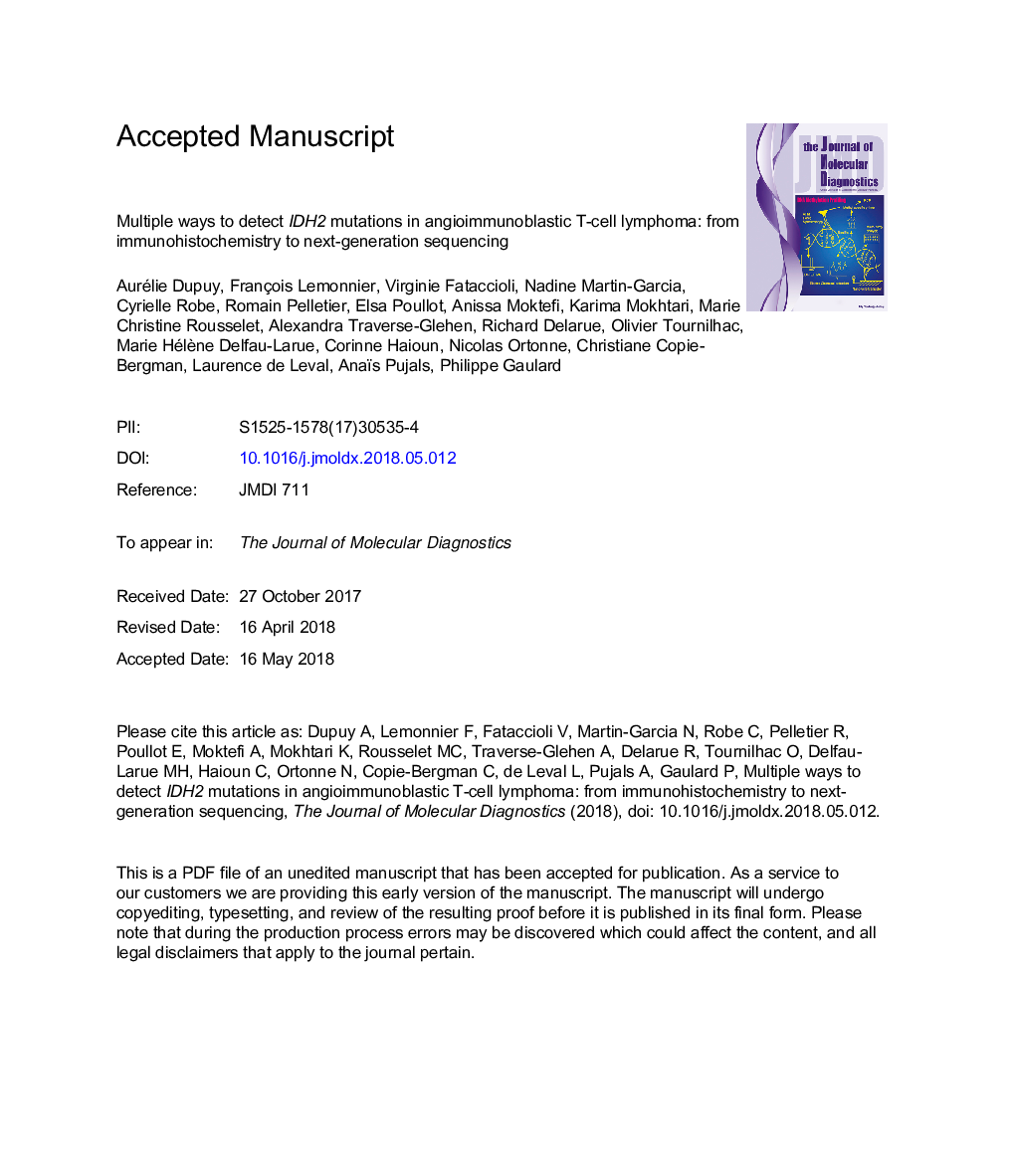| Article ID | Journal | Published Year | Pages | File Type |
|---|---|---|---|---|
| 8951989 | The Journal of Molecular Diagnostics | 2018 | 29 Pages |
Abstract
Angioimmunoblastic T-cell lymphoma (AITL) is a peripheral T-cell lymphoma associated with chemoresistance and a poor prognosis. Various nonsynonymous mutations in the R172 residue of IDH2 are present in 20% to 30% of AITL patients. In addition to their diagnostic value, these mutations are potentially targetable, especially by isocitrate dehydrogenase (IDH) 2 inhibitor, and therefore their identification in a routine setting is clinically relevant. However, in AITL, the neoplastic cells may be scarce, making the identification of molecular anomalies difficult. We evaluated the diagnostic value of different methods to detect IDH2 mutations in formalin-fixed, paraffin-embedded tumor samples. Immunohistochemistry with an anti-IDH2 R172K antibody, Sanger sequencing, high-resolution melting PCR, allele-specific real-time quantitative PCR, and next-generation sequencing (NGS) were applied to biopsy specimens from 42 AITL patients. We demonstrate that the IDH2 R172K antibody is specific to this amino acid substitution and highly sensitive for the detection of the IDH2R172K variant, the most frequent substitution in this disease. In our study, NGS and allele-specific real-time quantitative PCR displayed a good sensitivity, detecting 96% and 92% of IDH2 mutations, respectively, in contrast to Sanger sequencing and high-resolution melting PCR, which showed a significantly lower detection rate (58% and 42%, respectively). These results suggest that a combination of immunohistochemistry and AS-PCR or NGS should be considered for the identification of IDH2 mutations in AITL in a routine setting.
Related Topics
Health Sciences
Medicine and Dentistry
Health Informatics
Authors
Aurélie Dupuy, François Lemonnier, Virginie Fataccioli, Nadine Martin-Garcia, Cyrielle Robe, Romain Pelletier, Elsa Poullot, Anissa Moktefi, Karima Mokhtari, Marie C. Rousselet, Alexandra Traverse-Glehen, Richard Delarue, Olivier Tournilhac,
